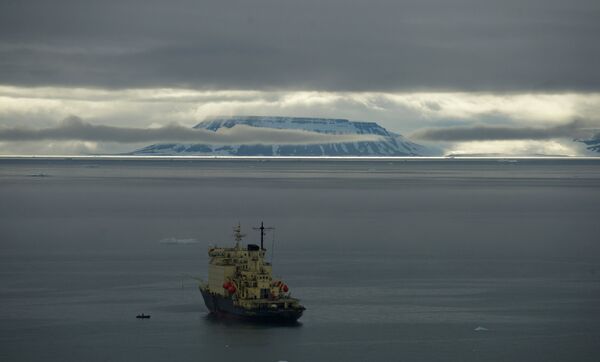TROMSO, January 21 (RIA Novosti) - Russia and other Arctic littoral states should boost security on their Arctic frontiers, as rapid pack-ice loss is making the region more accessible to maritime traffic, a Russian security official said on Monday.
According to the US National Snow and Ice Data Center, in late 2012 the area covered by Arctic ice shrank to its lowest since 1979. The average area of Arctic sea ice for December 2012 was 12.20 million square km, the second-lowest ever recorded by satellite.
“Climate change has increased the transport accessibility of the Arctic region. However, growing maritime traffic is likely to bring about more attempts at smuggling, illegal migration, drug trafficking… and other types of organized crime,” Yevgeny Lukyanov, a deputy secretary of the Russian Security Council, said at an international Arctic states conference in Norway’s Tromso.
“That’s why Russia needs to cooperate with other Arctic states in strengthening and defending its Arctic borders and in monitoring transportation routes,” Lukyanov added.
He denied Russia was pursuing military or geopolitical goals in the area.
Russian Deputy Prime Minister Dmitry Rogozin said in December 2012 that Russia risks losing its sovereignty by the mid-21st century if it does not assert its national interests in the Arctic today.
Russia has officially set the goal of deploying a combined-arms force by 2020, including military, border, and coast guard units, to protect its political and economic interests in the Arctic and boost Russia’s military security.
Eight states are currently members of the Arctic Council - Canada, Denmark, Finland, Iceland, Norway, Russia, Sweden and the US.


